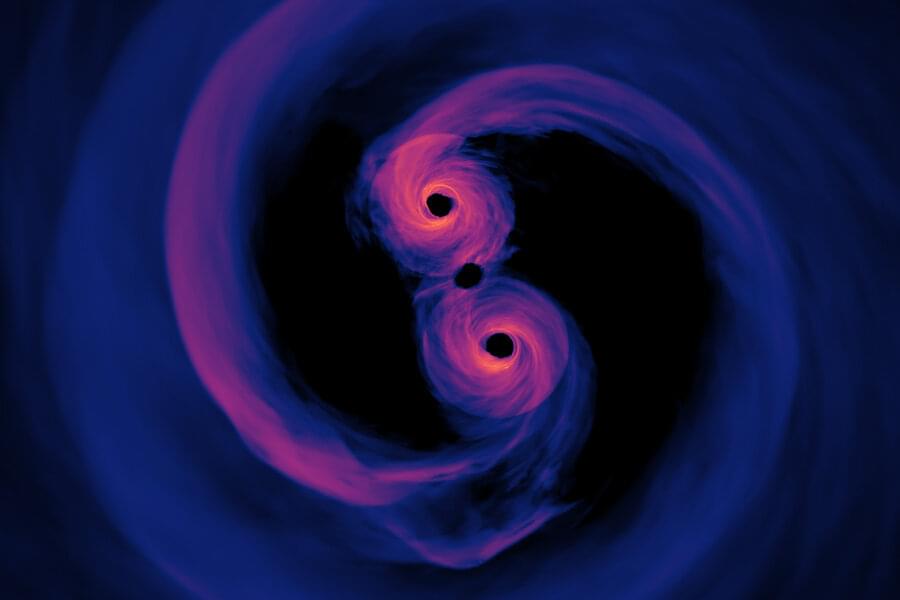Clues to a black hole’s origins can be found in the way it spins. This is especially true for binaries, in which two black holes circle close together before merging. The spin and tilt of the respective black holes just before they merge can reveal whether the invisible giants arose from a quiet galactic disk or a more dynamic cluster of stars.
Astronomers are hoping to tease out which of these origin stories is more likely by analyzing the 69 confirmed binaries detected to date. But a new study finds that for now, the current catalog of binaries is not enough to reveal anything fundamental about how black holes form.
In a study appearing today in the journal Astronomy and Astrophysics, MIT physicists show that when all the known binaries and their spins are worked into models of black hole formation, the conclusions can look very different, depending on the particular model used to interpret the data.
